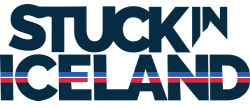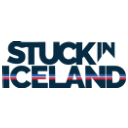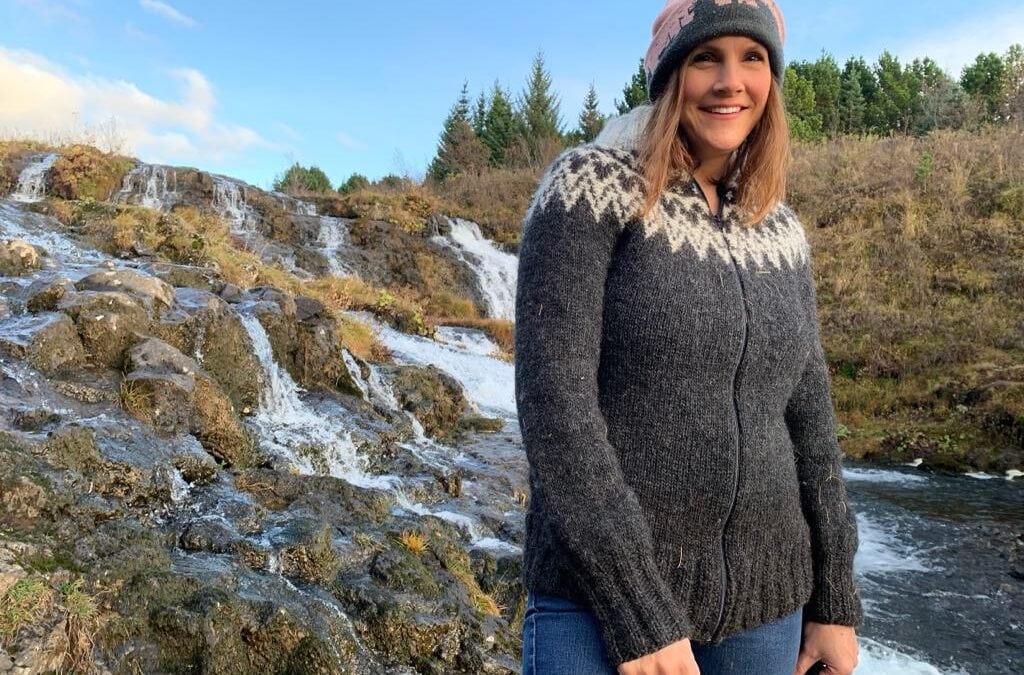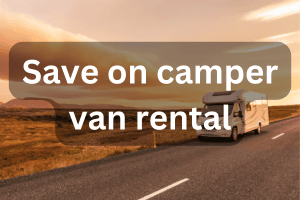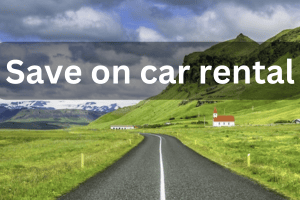Free and exclusive discount codes for hundreds of tours and & travel services in Iceland
Subscribe to instantly receive discount codes for tours, car rental, camper van rental, and outdoor clothing rental. Thank you! ❤️ Jon Heidar, Editor of Stuck in Iceland Travel MagazineIceland only has about 400 thousand people, equivalent to the population of Tulsa, Oklahoma, and Cardiff in the United Kingdom. However, Icelanders aspire to punch far above their weight. This means it is common for Icelanders to wear many hats in their careers and jobs. It also means that talented individuals have an outsized impact in their field. This is especially true when people bring international experience and perspective. One of those people I’ve been lucky enough to know is American-born entrepreneur Paula Gould.
Paula works at the intersection of technology, innovation, and global marketing. As the founder of her company, Float and Gather, she has helped many Icelandic companies successfully bring their products and services to international markets. The list of the organizations and entrepreneurs she has worked with is long. These include Iceland Writers Retreat, Wetland, Alda, Safa Jemai, Spa of Iceland, Hringvarmi, and many more. Paula is also the co-founder of Women Tech Iceland. This organization is dedicated to creating more inclusive and diverse opportunities within the tech industry.
Meeting people like Paula Gould who come outside of the ‘Icelandic hive mind’ is always rewarding
I first met Paula years ago when I recruited her as a speaker for an international tech conference here in Reykjavik. Immediately I was impressed with her input and expertise. I also loved hearing her perspective on Icelandic society. It is always very healthy to get an international perspective, especially when you live in a close-knit and sometimes single-minded country such as Iceland can indeed be. One American friend described Iceland to me as a ‘hive-mind’ where everybody was thinking or talking about the same things. I must confess that this description feels quite accurate to me. Anyway, I was able to persuade Paula to take a few moments for an interview, and here it goes!
Hey Paula, thanks for taking the time to do this interview. What brought you to Iceland for the first time?
Early in my career, I worked in entertainment and advertising. Through that work, I acquired a pack of friends who are creative, curious, and adventure-seeking. One friend I met while working on an ad shoot for Pepsi Max in the early 00s, Noah Ross, had tried to convince me to spend my New Year’s in Iceland. Having moved to Los Angeles from Boston to escape New England winters, this was a preposterous idea. But he persisted, and eventually, in 2008, I joined. It was the best decision of my life, really. I went back the following year with these friends again, and that’s when I met my husband.
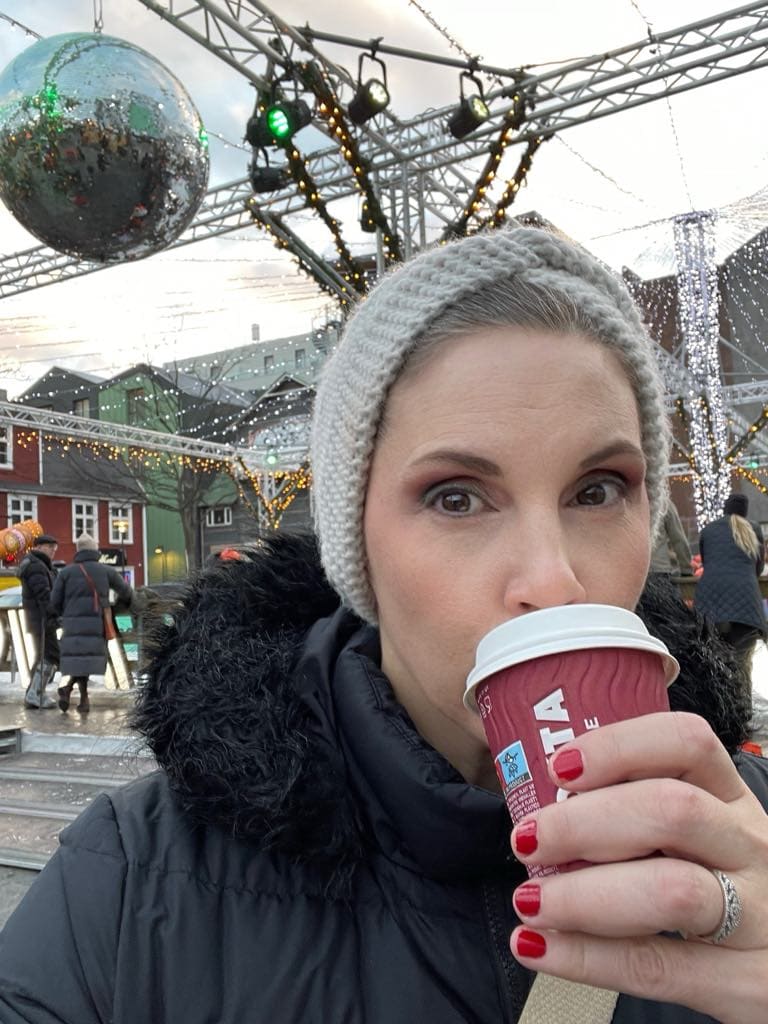
What were the things you felt were different and striking about Iceland and its society when you first came here?
Honestly, I had such a crazy busy life in LA, often flying around the country or internationally for work. I worked at the intersection of music, art, and tech. My friends did as well. They spent a lot of time convincing me I needed Iceland. I could have a 10-day escape, let my hair down in Reykjavik’s nightlife, and simultaneously ground myself in the country’s nature before heading back into the thick of things. Back then, I did mostly PR and Partnerships strategy, so the holiday week at the end of December was just about the only time I could rest before my year started at CES (the Consumer Electronic Show) every January. I fell in love with how easy it was here to talk to someone about a diversity of topics and that people always had depth to their identity. People’s depth of identity resonated with me. I always felt this way about myself, having a lot of interests that span the arts, science, politics, and humanities. I often say the moment I landed in Iceland in December of 2008, I felt immediately rooted—something I hadn’t experienced in a very long time.
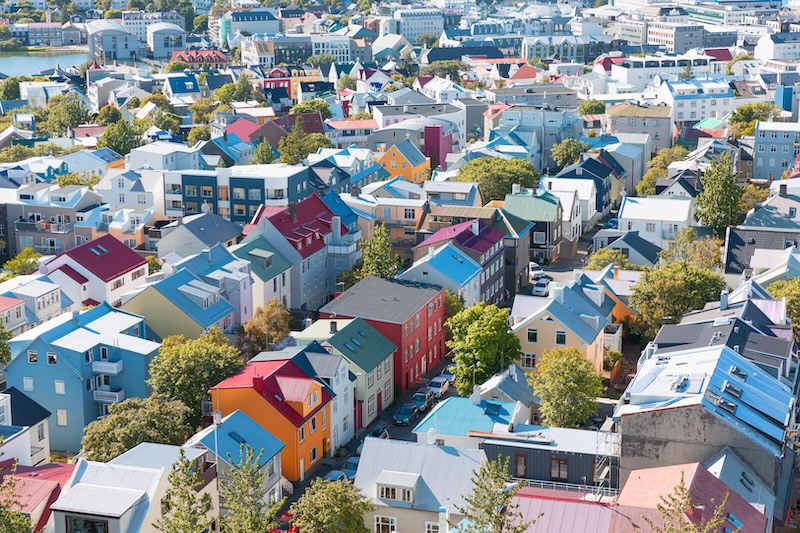
What opportunities and challenges are involved in running an international consultancy from Iceland?
My first consulting company, which I was running when I moved to Iceland in 2011, was also international. From that perspective, the internationality of running the business was easy. It may be even easier just by nature of being dead center between North America and Europe, especially post-pandemic/post-digital, when remote work isn’t a barrier. Hop on a plane, go to a conference, build a network. Jump on Zoom to get a deal done. But Iceland— and I’ve learned now the Nordics— generally have open minds but closed business cultures. We love everything to be cozy.
Naivety about how to succeed in international markets
It’s relatively easy, provided you’re in the right social and business circles, to get things moving here. However, that sometimes has the side effect of causing naivety about how market capture works in international markets. I often find that when consulting with companies here, I do a lot more expectation-setting, guidance on developing and nurturing networks, media training, and building processes-procedures alongside the strategy work I do than, say, with my American clients. When I moved here 13 years ago, Marketing and HR, if those departments even existed, were the same person. When I built a team of 5 as CMO at Greenqloud, that was considered a considerable team, which is still mind-blowing. Same with some of the other companies I’ve held strategic leadership roles in along the way. But that stems, again, from a deep lack of understanding of the science of marketing and its importance in scalability, trust, and business in general. These days, if someone boasts to me that they did X thing “without any marketing,” my response is generally, “Well, that explains things.”
That said, the Icelandic business ecosystem has matured a lot, and I know I have had a footprint in that change. We have retained our willingness to take risks, experiment, and go for it, which is the core culture here, but we are evolving to understand it takes money, hustle, and opportunism. It’s important to know how to find/create opportunities and the expertise and inclusivity to compete /capture markets abroad. This is especially true in Iceland, where we often don’t yet have teams in our target markets (which may be a whole other discussion for another day).
You work with many Icelandic entrepreneurs and companies. What differentiates them from American peers?
I see more similarities than differences. Entrepreneurs are a special breed. You need the same tunnel vision, belief in yourself/your idea/solution– a network of support for those hard days– and access to get or create funding. Most entrepreneurs are such due to upbringing, personality, need, or all three. I think due to specific societal underpinnings, it’s less risky to be an entrepreneur here. But you also have to work that much harder to get institutional investment and customers abroad to scale.
There has never been more angel and VC funding available in Iceland, but it is still quite limited comparatively, more so if you take gender, race, foreignness, socio-economic status, and other elements of intersectionality into consideration. That too is changing, albeit achingly slow.
I have worked with a lot more real-world, problem-solving companies here, such as solving global sustainability issues, logistics, supply chain, and business operations. But I also go where my heart is, where the work is, and where the money is– all very important for running a consulting company. Most of the companies I work with here and internationally intersect these combined areas and are solving huge problems. If I’m going to continue consulting, though, I’d also like to start working more in the arts, fashion, consumer products, and on ocean/marine initiatives again so that I feel centered and that I’m catering to more of my many interests, as I did when in LA.
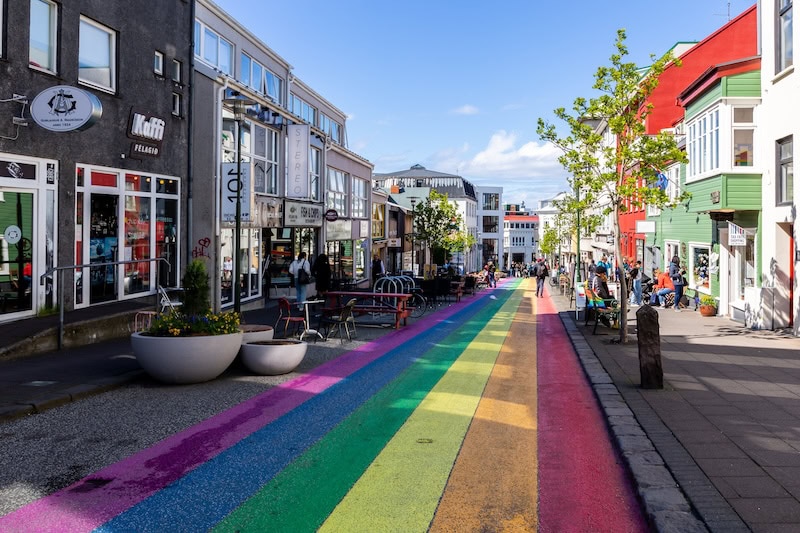
What advice do you have for people from abroad wanting to live in Iceland?
I suppose that depends on where you are coming from, geographically and personally. For some folks, there are huge opportunities, particularly if they are skilled in preferred fields such as science and engineering, where acquiring a work-sponsored visa may be easier. I moved here because it worked best at the time for my relationship and the family we chose to create. The transition was relatively easy. I have an Icelandic husband, and I am a white, middle-class American woman with international tech and entertainment experience. I was 15 years into my career when I moved. Businesses needed my marketing, PR, and biz dev skills, as well as my background working with startups and venture capitalists. It was a little rare back then.
I dedicated lots of time to mentoring and giving away mindshare to be visible and endear myself. I was an extroverted and relentless networker– it was easy to “show my value.”
The barriers faced by immigrants in Iceland
The barriers others face did not exist for me. For some, there is a lack of infrastructure, support, training, and understanding of inclusivity and anti-bias, which would enable Iceland to truly leverage the diversity of folks who make Iceland home. Visa processes can be challenging. We have lots of folks already living in Iceland who find it hard to find and keep working in their preferred field or the field they were educated in. From an American tech perspective, salaries are much lower and the cost of living much higher. I have found that non-Icelandic speaking English-language folks have it easier due to these challenges, which isn’t fair at all. But that’s only to an extent. They often feel like outsiders, too, especially after their newness wears off. Learning, speaking, and writing in Icelandic is very important despite what we are told. It can also be leveraged as an exclusionary tool, intentionally or not. Not speaking or writing Icelandic can limit the job market as well.
On the other hand, there’s perhaps a lot more freedom to explore different directions, whether out of necessity or needing a shift in scenery. In many ways, I’ve really found myself more genuinely and wholly. In others, I’ve felt alienated. Top advice: do your research.
What are your favorite places and activities in Iceland?
Outside of adventures in the countryside with my in-laws and cozy nights at home with my family? I’d say my friends’ houses. Really, wherever my friends are, it is my favorite place to be. I have a truly, truly remarkable group of friends. Honestly, I’d be lost without them. We are all so different, and when we get together, we laugh a lot. We give each other the opportunity to be our whole selves. That’s so important when you’re living somewhere you didn’t grow up and when you’re away from your core network.
Workwise, the various innovation, marketing, tech meetups, and thought-provoking lectures. The Fulbright Commission periodically has presentations from local and visiting scholars, which are always fascinating. Of course, the WomenTechIceland events that our team puts together are always great. I look forward to Iceland Innovation Week, too.
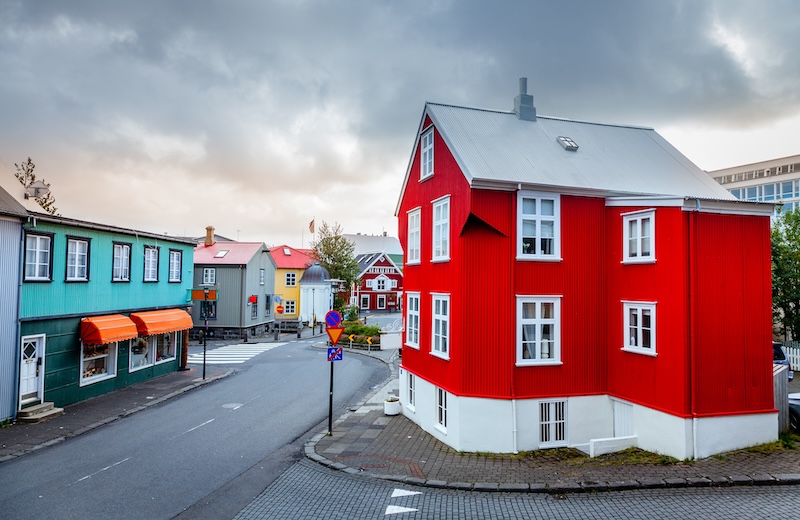
Socially, I love a good happy hour at Tipsy or Port9, people-watching at Veður or Kaldi on a weekend, a meal with friends at Himalayan Spice, Hraðlestin or Fjallkonan, a peruse through Andrea Ellen Jewelry shop, a quiet coffee at Hygge, Reykjavik Roasters or seeing what’s new on the shopping streets downtown. Checking out The Bookstore Band at Hús Máls og Menning or dropping in on the English-language comedy shows are also great.
I also love whatever sparks excitement and happiness in my kids’ faces. That’s usually a trip to Amma and Afi’s to ride the horses. I’m really into simple moments of joy these days.
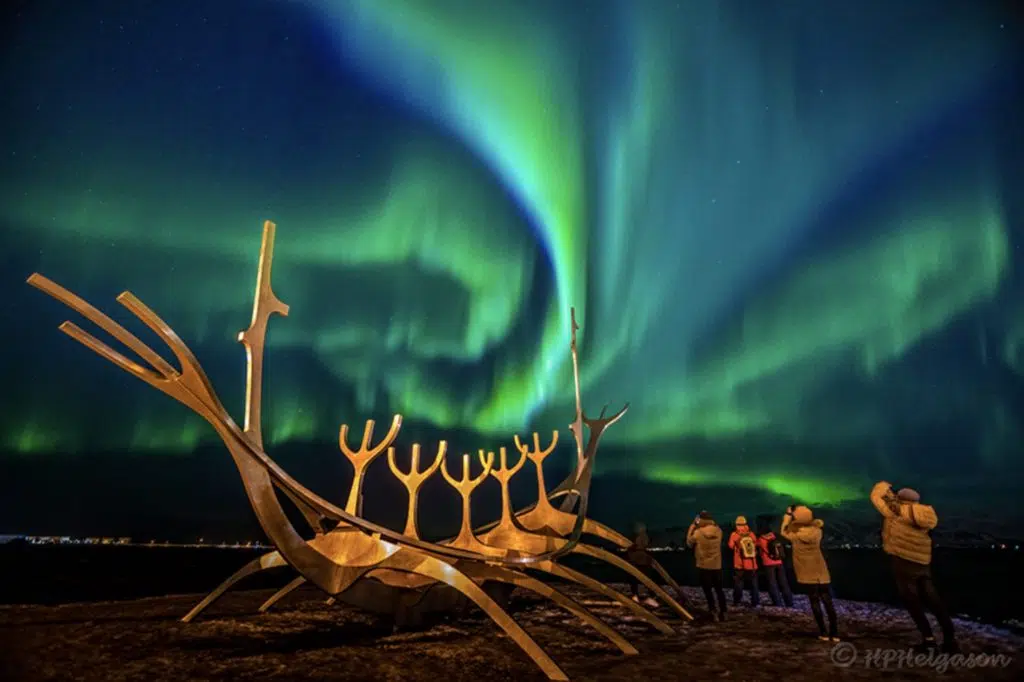
What advice do you have for those visiting Iceland for the first time?
See and do all the things. Sure, come for the Northern Lights, but stay for the hike up a glacier, fishing one of the many gorgeous rivers, take in a performance at the national theater, or check out an exhibit at one of the many museums and galleries. Finding local bands can be hard since a lot of the music venues are gone, but there are some and we do music well here.
Connect with people in your work interests. We get lots of messages at WomenTechIceland from women, non-binary and transgender folks in tech from abroad looking to see what Iceland’s tech scene is all about and want to meet up when they come over to Iceland.
